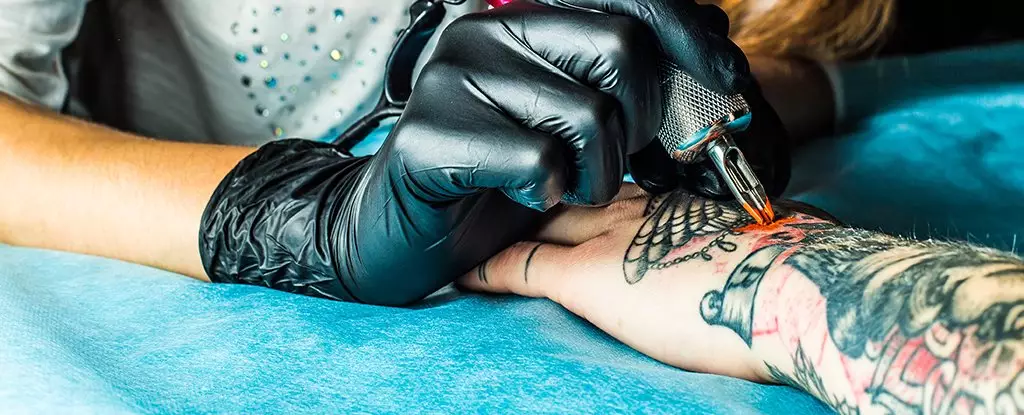A recent study conducted by the National Center for Toxicological Research (NCTR) and the Center for Food Safety and Applied Nutrition (CFSAN) found alarming levels of bacteria in tattoo inks and permanent makeup products. The research revealed that approximately 35 percent of commercial samples contained bacteria, including aerobic and anaerobic species. This poses a significant health risk, as anaerobic bacteria can survive in low-oxygen environments, such as the dermal layer of the skin, even without air supply.
The study tested 75 inks from 14 different manufacturers, all of which were sampled from sealed, unopened bottles. Shockingly, microorganisms were discovered in 26 of the 75 samples, with 8 potentially pathogenic species present. Despite 49 of the products being labeled as sterile and free from bacteria by the manufacturers, the researchers found no correlation between these claims and the actual presence of bacterial contamination. This raises concerns about the effectiveness of current sterilization procedures for tattoo inks.
Tattoos have become increasingly popular, with approximately one in three adults in the US having at least one. While tattoos have been linked to various health issues, including an increased cancer risk, research has also shown that getting tattoos can boost the immune system. However, microbial infections are a common concern, affecting between 0.5 and 6 percent of tattooed individuals. Previously, these infections were attributed to hygiene or aftercare practices, but the recent study indicates that contaminated inks may be the culprit.
Importance of Monitoring Tattoo Inks
This study is groundbreaking in its examination of anaerobic and aerobic bacteria in tattoo inks, highlighting the need for further research on the safety of these products. As microbiologist Seong-Jae Kim emphasizes, it is crucial to continuously monitor tattoo inks to ensure microbial safety. The findings underscore the importance of understanding the composition of tattoo inks and implementing stringent quality control measures to protect consumers from potential infections.
The presence of bacteria in tattoo inks poses a significant health risk to individuals getting tattoos or permanent makeup. The study’s results call for a reevaluation of sterilization procedures and labeling practices within the tattoo industry to prevent infections and ensure consumer safety. Continuous monitoring and research are essential to address this overlooked health concern and promote the safe application of tattoos.


Leave a Reply